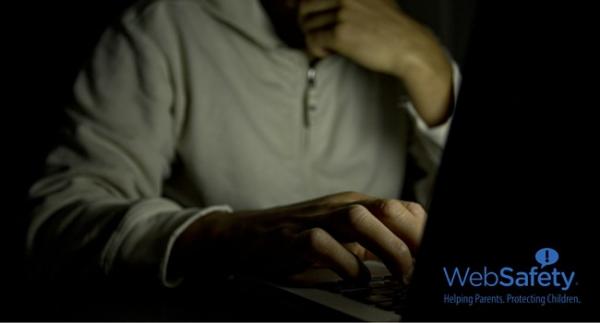
After school, your child hops on the computer. He could be playing silly games or watching a cute cartoon video, but sometimes, he may be placing information online that you don't know about.
Even if your child is too young to go online, he can still make a digital footprint that will last forever. Make sure you stay in control of that information by knowing some of the things online predators can discover about your child.
Read: 11 things your kids are too scared to tell you
1. Exact location
Instagram hashtags and location features may seem cute to add to a photo, but they also tell anyone exactly where your child is. If you post a picture of you and your child at home, and if you add a location tag to that photo, people can easily find out more about where you live.
2. Full name and birthday
Many sites, even seemingly harmless gaming websites, ask for your child's name and birthday to login. This seems like useless information, but when an online hacker receives those two pieces of knowledge, he can begin to unlock your child's world.
If you're a blogger, and if you often write your child's full name, you may be to blame too. Many parents who blog often write only their children's initials in a post. Or they give their children nicknames to avoid oversharing.
3. Interests and hobbies
If your child loves baseball or gummy worms and talks about that online, predators may find out. Even the silly pages on Facebook that let you like them (such as "basketball is awesome!") can reveal a lot about your child. Skilled hackers can piece together information and lure your child.
4. Schedules
When your child gets home from school at the same time each day and logs on to the computer, people on the other side of that computer will know. If you post online about weekly traditions or picking up your child at 2:30 every day, you increase the chance of personal invasion. It may seem like a long shot, but once someone knows your child's name, school and pickup time, the situation becomes a lot more dangerous.
5. Photos
Yes, people post hundreds of photos at every hour of the day, but some online predators take these photos and reproduce them. Some even alter the photos or begin to stalk your child, waiting for your next posts. That doesn't mean every time you post, someone is grabbing your photo and harvesting it, but if a skilled hacker is deep into your personal life, they'll overtake your identity and your family, and they'll use those photos in their files.
According to 2machines, "with children making digital footprints at an earlier age - thanks in part to parents eager to immortalize their kid's images and information in the cloud - the available bank of data for hackers and other unsavory types to scour will only grow."
6. Secrets
If your child shows signs of bullying or trouble at home, the online world will find out. Maybe your child went to a friend's house after school and got caught up in drinking, viewing inappropriate photos or bullying. Somehow, these things can leak into the virtual world. You may be the one to discover your child's secrets simply by searching her history and friends. Instead of snooping around, talk to your child about her online activity.
Another great way to keep tabs on your child's social media activity is through WebSafety. WebSafety is an app that lets you monitor what your child does on their mobile phones and tablets. The app notifies parents of cyberbullying, inappropriate language, downloaded apps, visits to pornographic websites, and Facebook and Instagram activity.
Click to visit WebSafety's Kickstarter page to find out how to give you the peace of mind you deserve.

